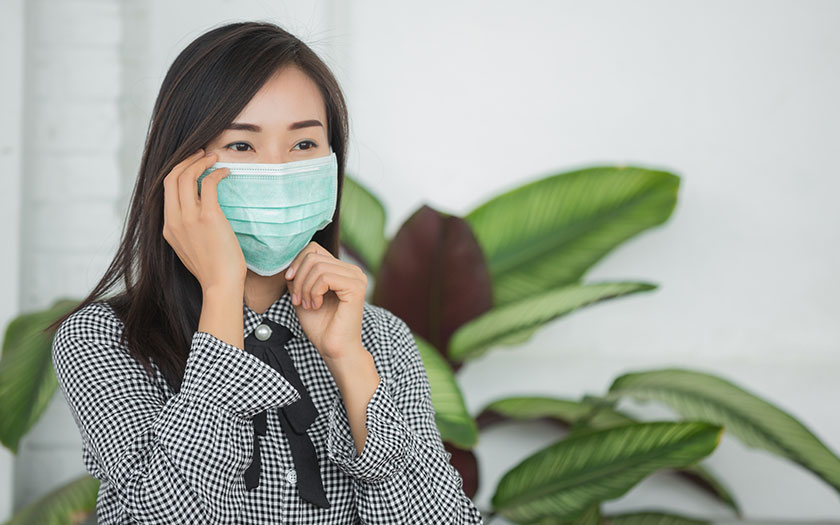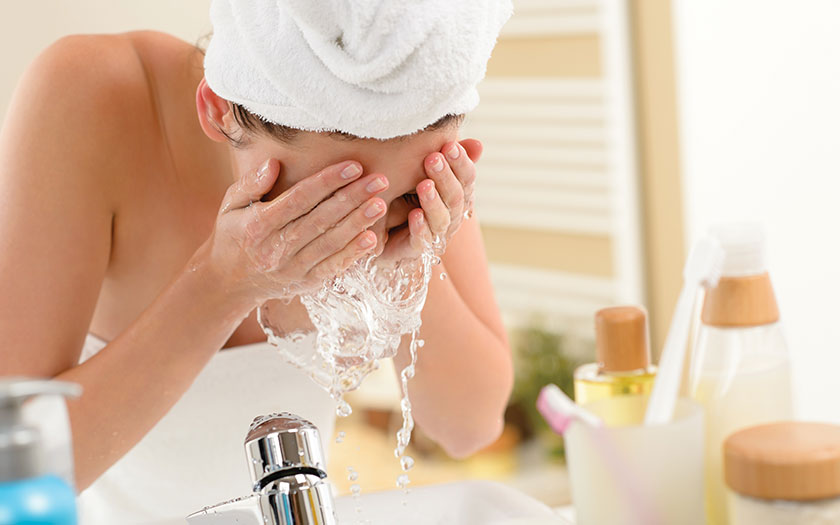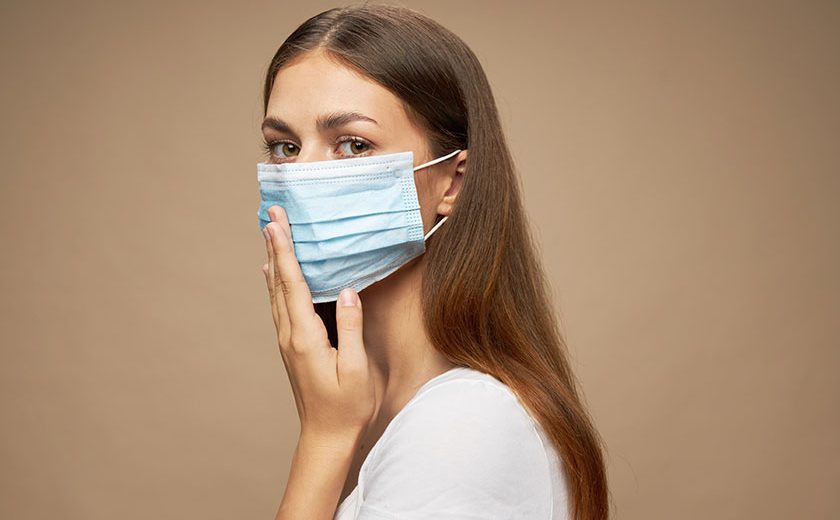Whether you like them or you don’t, face masks are an effective prevention tool during this pandemic. However, many wearers have reported that they develop “maskne” or acne breakouts after wearing masks for many hours during the day.
It may seem a bit odd that masks would cause acne as they are supposed to shield your face from pollutants and germs from the outside in the first place. Generally, if you are not allergic to the material of the mask, the mask itself isn’t harmful. Maskne is usually caused by mechanical friction of the mask against our skin. This friction brings about inflammation and irritation to our skin which ends up clogging our pores, resulting in acne. In fact, for those who suffer from rosacea, maskne can trigger or make the condition worse than before.
Fortunately, there are ways to combat maskne. Here are a few top tips to prevent mask-induced acne breakouts:
#1 CHECK YOUR MASK MATERIAL
First and foremost, consider if you are actually allergic or sensitive to the material of the mask that you wear daily. According to Dr. Anna L. Chien, Associate Professor of Dermatology at the Johns Hopkins University School of Medicine, there are many different types of materials used to make face masks and some are gentler on the skin than others. For example, a mask with smoother texture will help to reduce friction, which lessens the chances of causing maskne.
Chien adds that some face masks may also be pre-treated with formaldehyde for disinfection purposes. “If you’re allergic to that chemical, those masks could spark a breakout,” she says in an article on hopkinsmedicine.org. For those with sensitive skin, it is best to avoid synthetic fabric like nylon, polyester and rayon, if possible.
#2 GET THE RIGHT FIT
To reduce skin-related discomfort, the American Academy of Dermatology advises users to go for a mask that fit well. Masks should be snug yet comfortable and feels soft on the skin to decrease chafing. Avoid those that keep sliding around your face or those that are so tight it seemed plastered to your face. If a mask doesn’t fit well, you will end up adjusting it all day. The main idea is to reduce the frequency of your hands touching your face as that is how germs are transferred.

#3 MOISTURIZE
Here’s an easy and effective mask-wearing tip: apply moisturizers around your face before putting on your mask. Moisturizing creams act as a protective barrier and help to reduce friction between the mask and the lower part of your face. Leave it on for a while before putting on your mask so that the cream does not adhere to the mask surface.
#4 ENSURE FACE IS CLEAN
Prior to wearing your mask, clean your face first. Similarly, when you take off your mask, wash your face with water and wipe it dry with a soft towel. Also, use gentle cleansers twice a day. If you are prone to acne, go for facial washes that come with salicylic acid.

#5 WEAR CLEAN MASKS ONLY
Make sure you are wearing a clean mask every time. Bacteria, oil and dead skin cells can build up on the inside of your mask and contaminate your skin which then causes breakouts. According to Kementerian Kesihatan Malaysia, disposable face masks should be worn not more than 8 hours (if you are symptom-free). It should also be discarded once it is soiled. Safety aside, following this mask-wearing guideline also reduces breakouts as dirty masks are one of the main contributors of acne.
#6 LET YOUR SKIN BREATHE
If possible, take a short break from wearing masks and let your skin cells breathe a little. For instance, if you are in the car or at home alone, it is safe to remove it for short while. Take this opportunity to clean and freshen up your face.
#7 MINIMIZE MAKE-UP
If you are suffering from skin issues due to wearing masks, make-up may exacerbate the condition as cosmetic products can clog pores. Consider forgoing make-up and focus on good skincare instead so that your skin is protected and nourished throughout the day.
If your maskne breakouts are not getting any better, or if they are accompanied by skin discomfort like inflammation and rashes, visit a dermatologist to get the right treatment. While there may be some discomfort or inconveniences in terms of wearing masks, they are an important part of our daily life now. So keep it up and find ways to remedy minor issues like maskne when they crop up.
References:
https://www.hopkinsmedicine.org/health/conditions-and-diseases/coronavirus/coronavirus-tips-to-avoid-maskne-skin-irritation
https://www.aad.org/public/everyday-care/skin-care-secrets/face/prevent-face-mask-skin-problems
http://www.myhealth.gov.my/en/face-mask/


